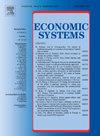The effects of environmental taxes on environmental pollution in the member states of the European Union
IF 3.3
2区 经济学
Q1 ECONOMICS
引用次数: 0
Abstract
This paper examines the effectiveness of environmental taxes as a potential instrument for mitigating climate and environmental problems. The relationship between environmental taxes and indicators of air quality and environmental protection is examined with a sample of 28 countries (26 member states of the European Union, Norway, and Iceland) in the period 1996–2022. The dynamic panel models are estimated using the system–generalized method of moments proposed by Blundell and Bond (1998), as it is suitable for addressing potential endogeneity issues. Empirical analysis reveals that total environmental taxes are generally associated with a decline in greenhouse gas emissions and air pollution. Energy taxes appear to be the most effective type, as an increase of 1 percent in these taxes is associated with a reduction in total greenhouse gas (GHG) emissions of 0.5 percent for three prior years. In particular, energy taxes are effective for decreasing carbon dioxide (CO2) emissions as well for other kinds of emissions and air pollutants. However, there is not enough evidence to confirm the contribution of transportation taxes and taxes on pollution and resource use to an overall decline in emissions and air pollution. This study contributes to the literature by providing ex-post empirical evidence on the effectiveness of environmental taxes in reducing GHG emissions and improving air quality in several European countries.
欧盟成员国环境税对环境污染的影响
本文考察了环境税作为缓解气候和环境问题的潜在工具的有效性。在1996-2022年期间,以28个国家(欧洲联盟的26个成员国、挪威和冰岛)为样本,研究了环境税与空气质量和环境保护指标之间的关系。动态面板模型使用Blundell和Bond(1998)提出的系统广义矩法进行估计,因为它适用于解决潜在的内生性问题。实证分析表明,总的环境税通常与温室气体排放和空气污染的下降有关。能源税似乎是最有效的一种,因为这些税每增加1%,前三年温室气体(GHG)总排放量就会减少0.5%。特别是,能源税对于减少二氧化碳(CO2)排放以及其他种类的排放和空气污染物是有效的。然而,没有足够的证据证实运输税、污染税和资源使用税对排放和空气污染总体下降的贡献。本研究通过提供一些欧洲国家环境税在减少温室气体排放和改善空气质量方面的有效性的事后经验证据,为文献做出了贡献。
本文章由计算机程序翻译,如有差异,请以英文原文为准。
求助全文
约1分钟内获得全文
求助全文
来源期刊

Economic Systems
ECONOMICS-
CiteScore
4.90
自引率
0.00%
发文量
83
审稿时长
48 days
期刊介绍:
Economic Systems is a refereed journal for the analysis of causes and consequences of the significant institutional variety prevailing among developed, developing, and emerging economies, as well as attempts at and proposals for their reform. The journal is open to micro and macro contributions, theoretical as well as empirical, the latter to analyze related topics against the background of country or region-specific experiences. In this respect, Economic Systems retains its long standing interest in the emerging economies of Central and Eastern Europe and other former transition economies, but also encourages contributions that cover any part of the world, including Asia, Latin America, the Middle East, or Africa.
 求助内容:
求助内容: 应助结果提醒方式:
应助结果提醒方式:


